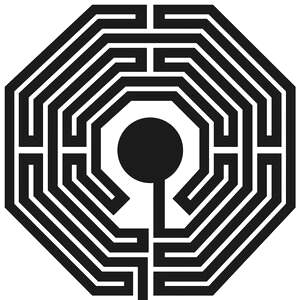Opinion: How ChatGPT is transforming economics education.
Opinion: How ChatGPT is transforming economics education.
Picking up ChatGPT for the first time made me feel like a kid in a toy store. From asking it to explain a statistical concept to me, to seeking its insights on how to improve myself given my personality type, ChatGPT gave satisfactory answers to the myriad of strange and very specific questions I offered it, switching seamlessly between far-flung topics.
I’ve been curious as to the potential economic implications of a productivity-enhancing technology like ChatGPT. What is its potential to be a disruptive technology? In my day-to-day experience as an economics student, what are some potential limiting factors that could prevent it from reaching its upper bound in terms of improving output for others looking to rapidly acquire knowledge and skills in this discipline?
But first, what is ChatGPT? ChatGPT is a large language model developed by OpenAI that can generate human-like text. It is trained on a massive amount of data and can be fine-tuned for a variety of natural language processing tasks such as language translation, text summarization, question-answering, and problem-solving.
For an economics student like me, ChatGPT is a multi-functional tool that has the capability to provide a rough framework for solving problem sets. For my professional life, ChatGPT greatly increases my efficiency in writing emails, completing job and coding applications, and creating abstracts of readings.
In other words, ChatGPT provides productivity increases by making problem-solving more efficient. In the best case scenario, it provides the user with a direct answer with full structure and nuance of the problem, thereby saving the person the hassle of struggling to develop the structure of the solution to the problem and working through it. This case assumes that ChatGPT makes no errors, which is not always true. It is most likely for questions that require mechanical solutions, such as plug-and-chug problems. Surprisingly, in my experience sometimes the output for math-related questions can be funky. For example, when I asked it about the result of a basic matrix multiplication problem, it did not correctly provide the dimensions of the product matrix.
Following this example, there are a couple of limitations to consider. Since ChatGPT is trained on data, its results and problem-solving are based on known and existing models that exist on the data it uses. As of now, the January 9 Version of ChatGPT has a knowledge cutoff which is in 2021, meaning its knowledge of current events is limited. As such, recent advancements in problem-solving, technology, and geopolitics are areas in which it struggles. Additionally, the OpenAI website states that it: “may also occasionally produce harmful instructions or biased content.”
Regardless, the implications of ChatGPT for students and faculty are enormous. For example, if a student were working on an economics problem set and struggled with a question for an hour, ChatGPT’s partly erroneous answer would still reduce the time taken to complete that problem correctly by nature of providing structure to the student. An upper bound on the productivity gains provided by ChatGPT would be achieved with the lofty assumptions of continued free access for users and accurate training data. A lower bound on productivity enhancement for students would be if ChatGPT does not provide any correct information to the user, and the student would proceed with solving the problem with close to the same amount of time they would have previously taken without ChatGPT. These two cases highlight how ChatGPT is still an asset to students even if it sometimes provides erroneous information: because it takes a relatively low amount of time to run a question through ChatGPT and it's free of cost for users for now, students have only to benefit from using ChatGPT if they use it intelligently. In my experience, a combination of AI-generated work, asking ChatGPT generic questions, and personal work provides the best results and allows me to not be stuck on problems I find particularly challenging.
Practically speaking, ChatGPT’s feature of providing coding debugging and assistance lowers barriers to entry to coding for novices. I see it as a partial complement and substitute for tools like StackOverflow and other coding websites, and its functionality is apparent when the alternative is sifting through reams of coding tutorial websites. In effect, it centralizes a lot of information on one platform, allowing the user to avoid the search process. Additionally, ChatGPT's capability to interpret the specific requirements of a coding problem is particularly beneficial for beginners. This feature allows them to save time by quickly resolving syntactic and structural issues in their code. Overall, ChatGPT has the potential to greatly increase accessibility to coding and provide an efficient tool for beginners and experts alike.
The advent of ChatGPT transforms the education paradigm in the field of economics by providing access to AI-generated content. However, this also raises important considerations around regulatory guidelines for fair use, plagiarism, and ethics. The implications of ChatGPT extend far beyond the educational sphere and have the potential to impact every aspect of business and industry. In the realm of education, ChatGPT challenges educators to re-evaluate traditional teaching methods and assessment techniques and explore new ways of delivering information to students. Overall, ChatGPT is a powerful tool that has the potential to change the way we learn and educate, but it is important to approach its implementation with ethical considerations in mind.

